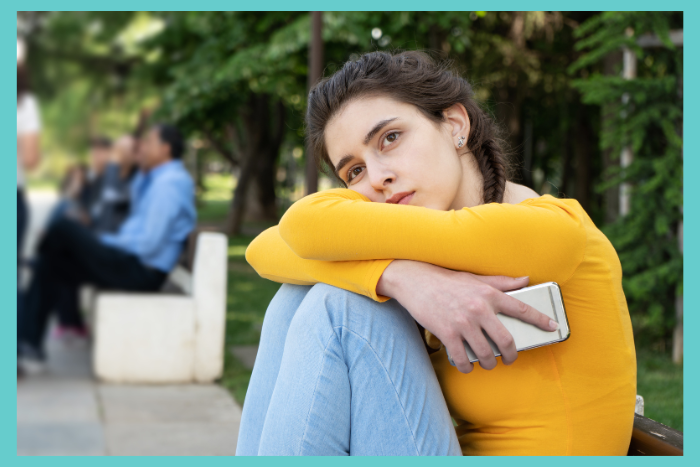Social interaction is important for people of any age, but it’s especially vital for the development of adolescents’ mental health. Research suggests a strong connection between social isolation and adolescent anxiety and depression, according to the National Library of Medicine.
Teens may voluntarily withdraw from certain social interactions as their interests change, once puberty hits or for a variety of other reasons. However, if they’re socially isolating for an extended period of time, it may negatively impact their mental health.
So, how do you know when your teen is struggling with their mental health due to social isolation? We’ll share some common symptoms of social isolation, when to be concerned about your teen’s social isolation and how to help them reconnect to others.
How social isolation affects physical and mental health
Loneliness and social isolation in teens have been on the rise for years, but the COVID-19 pandemic in 2020 only accelerated that, according to the Association of State and Territorial Health Officials. Forced quarantine and limited social interactions during the pandemic increased feelings of social isolation and loneliness in adolescents.
Not only can social isolation increase your teen’s risk of anxiety and depression, but it can also negatively impact their sleep quality, impair executive function, accelerate cognitive decline and impair overall immunity, according to the American Psychological Association. Here are a few ways social isolation can impact your adolescent’s mental and physical health. Symptoms of continued social isolation include:
- Dreading or avoiding social interactions
- Excessive worry or sadness
- Depression
- Low energy, especially at the thought of attending a social event
- Anxiety or panic attacks
- Canceling plans or feeling relief when others cancel plans
- Feel panicked at the thought of social interactions
- Sleep issues, such as struggling to fall or stay asleep
- Spending lots of time alone
- Avoiding spending time with others or limiting social events
- Headaches or feeling ill at the thought of social events
- Suicidal thoughts or attempts
If your teen is experiencing suicidal thoughts or is thinking of harming themselves, call or text 988, the 988 Suicide & Crisis Lifeline, for immediate support.
Struggling with these symptoms may mean that your teen is experiencing social anxiety or another mental health condition. If treatment isn’t sought, they may be more likely to continue to withdraw from social events. This can continue the cycle of social isolation and loneliness.
When to be concerned about your teen’s isolation
If your teen’s lack of social interaction seems to be negatively impacting their physical or mental health, they may need professional help. If you think your teen is struggling with their mental health due to social isolation, talk to their healthcare provider to see if they can provide assistance.
It can be concerning to see your teen withdraw from their social life, but there are things you can do to encourage them to get out of that isolated mindset. There isn’t a one-size-fits-all solution for loneliness and social isolation, but there are a few ways to reduce social isolation:
- Acknowledging feelings of loneliness — Encourage your teen to find a safe place to share their feelings of loneliness. That can include talking with a trusted family member, finding a therapist or even simply journaling about their feelings.
- Connecting with communities — An after-school club, sports team or even a trusted online community can be great places for your teen to connect with others. Helping them find a place where they can share their interests with like-minded people can help them break out of that cycle of isolation.
- Getting out of the house — A change of scenery, no matter how small, can improve your teen’s mood. Going shopping or exercising can get them active and produce endorphins, and spending time outside can boost their mood and vitamin D levels.
- Volunteering — Focusing on something else can give your teen a sense of purpose. Help them find a cause they believe in to volunteer for. This can give them something positive to focus on and also connect them with others who share their passion.
These are small things you can encourage your teen to do to help address their loneliness. However, if their social isolation is causing significant mental health challenges, they may need the help of a mental health professional.
If your teen has been in therapy but hasn’t seen improvement in their mental health, a higher level of support can be beneficial. At Embrace U, we offer personalized outpatient treatment that combines:
- Group and individual therapy
- Psychiatric assessment
- Family counseling
- Medication management
These complete programs can help adolescents aged 10 to 18 address their mental health conditions and learn valuable coping skills. Contact our team today for more information or to schedule an initial appointment.




